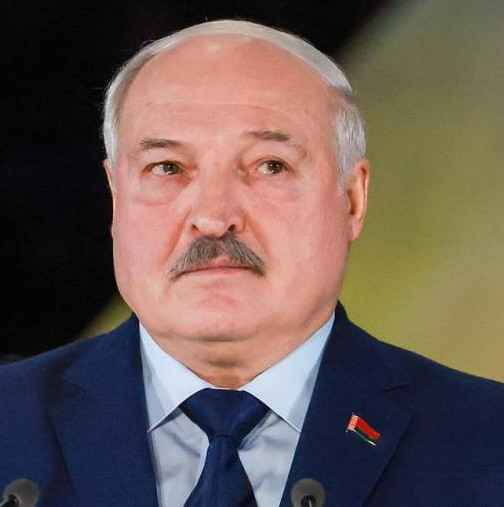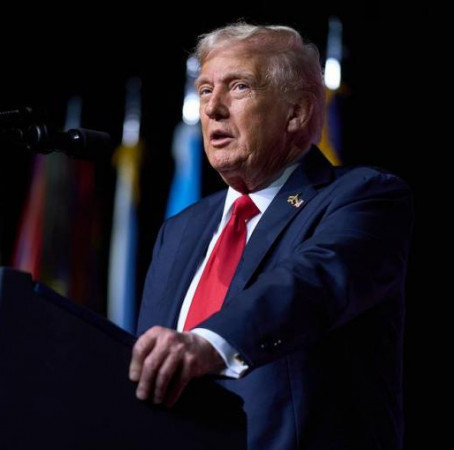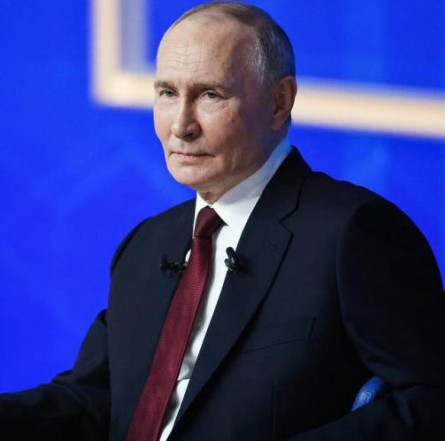Society
"The Georgians have Thrown Dice - and Lost." What’s Then?
Three years have past since the beginning of "August war" between Russia and Georgia
Archil Imereli

Three years ago, in these days of August the Chinese Bird’s Nest stadium Olympic was seething with passions. Meanwhile, Georgia, which had seriously prejudiced Beijing’s Olympic triumph by sudden war against South Ossetia, already suffered an ignominious defeat of its army and mourned over the dead...
Tbilisi, violating the Olympic Charter’s ancient principle of the Olympic Truce, at that date really threw Beijing off the focus of world attention - foreign press breathlessly told the breaking events in Georgia, moving the Olympic news to the background.
Tbilisi authorities designedly timed its military operation against the ‘recalcitrant region’ to the Olympics opening day. They wanted very much to return South Ossetians (and also other recalcitrants - Abkhazians) to Georgia. Even mystical numerology was put to use - a lucky date, according to Chinese beliefs, was chosen - 8/8/08 (the start of the Olympic Games). This number should bring happiness and good luck, successful organization, success, financial independence however its magic appears to work in the East only. Anyway, the eight has brought no good to Georgia. Perhaps the ancient Greek Olympian gods proved stronger than the eastern numerology postulates?
It is worth remembering an interesting unexpected turn experienced by Americans at that date. Highlight messages that Russia attacked Georgia (whose name in English sounds like the name of the American state of Georgia), sowed panic among the residents of this state. Americans began to vigorously discuss the dangerous situation at home: now they say, the Russians have attacked Georgia, and then will take Alabama in hand, get to Texas and other... But it has come to mind just as a sidenote, to illustrate what incidents an irresistible desire to be called not Gruzia but Georgia may lead to.
Three years that have past since that war in August is quite enough time to try to cool down the emotions, to stifle offenses, to analyze what happened and to look with an impartial eye at August 2008 and, of course, to answer some questions. Who and what has lost and won in this war? How will things be moving further? What conclusions can be drawn from this painful conflict? And the most difficult one: how to build further relationship...
Many in Georgia have doubts that the national authority had done everything possible to avoid a collision and unnecessary victims both among the military and civilians. There may be other questions, which sooner or later will be raised without fail before the authorities.
I think once again of the bloody August background. The escalation of the Georgian-Ossetian conflict, which had been for many years considered ‘frozen’, began in the spring of 2004, and from then onward continued with some intervals, almost turning the region into an area of combat operations. The situation grew tense with each passing year, volleys of gunfire rattled on both sides until grew into the August ones.
Not only now, but even then it was clear to many that Mikhail Saakashvili’s ‘Olympic dash’, his stake on a blitzkrieg were doomed to failure. What was actually its calculation based on? That Russia will not mess up his plans; will not get involved in a war with Georgia, knowing that otherwise it would undermine its image in the eyes of the world? True, it was Chechnya that much concerned, but de jure it is the territory of the Russian Federation, whose president has every right to bring there federal troops to restore order without international sanctions.
Or the president believed the assurances of the U.S. and the West that a full scale invasion is unimaginable in the XXI century? And he relied on the fact that if anything crops up the partner countries will help, will be able to stand for their friend? Probably, all put together. By the way, with the beginning of military operations, foreign countries, from which the Georgian government in the conflict with Russia was waiting for assistance, confined themselves to masse evacuation of their citizens from Georgia...
There is no doubt, Saakashvili made a strategic blunder by giving the order to conduct a missile attack on Tskhinvali. He risked – because you know, no guts, no glory! True, but with one caveat: he who runs risks justifiably, drinks champagne, and who unjustifiably – other drink vodka for him…
Analyst Michael Denison of London’s Chatham House research center (an expert in Russian and Eurasian affairs), commenting on the war in South Ossetia, said: "The Georgians have thrown dice - and lost.. The lightning victory calculation was not unreasonable, but eventually it proved to be a miscalculation."
The president lost. And the country lost together with him. It lost Abkhazia and South Ossetia that Russia recognized as independent states. Meanwhile, before the war, it did not intend to do it, what the next day after the recognition of Kosovo at Munich Security Conference, Vice Premier of Russia Sergei Ivanov said.
The war claimed the lives of many people, and this is an irreparable damage... To 30 thousand people displaced from Abkhazia, over 50 thousand refugees from the Tskhinvali region and the Kodori Gorge were added.
The country has lost its military infrastructure, whose restoration to its pre-war level has required billions of dollars of additional investments (amounting to almost half of Georgia’s GDP!), of new external debts, which is destroying the economy being already on its last legs.
Other consequences of war struck at Georgia too: Batumi and Poti ports operations were suspended for some time, goods transportation to Armenia and through Azerbaijan was paralyzed, the Baku–Tbilisi–Ceyhan pipeline work was temporarily suspended.
Arthur Neville Chamberlain was right saying that in war there are no winners... only losers. Yes, Moscow has taught a lesson to the former Soviet republics (for Armenia and Azerbaijan it was a real ‘master class’, which was confirmed on 4 August by the Russian President Dmitry Medvedev in Sochi in a television interview to TV channels "PIC", "Russia Today" and "Echo of Moscow"). Yes, in fact Russia has separated the South Ossetia and Abkhazia from Georgia, shook confidence in Saakashvili (who, however, continues to hold office - maybe because of the opposition’s weakness, or maybe because his ‘resource’ in the eyes of the United States has not been exhausted).
But the worst is that the war finally stalemated relationship of two people bound by ties of historical destiny. How can we live during a ‘cold war’? They say that no one needs the war, but other need hatred. Well, we seem to have received it in full. I recall the words of great Georgian philosopher Merab Mamardashvili, who lived in Russia over three decades: "By protecting the dignity of an Abkhaz, Armenian, Ossetian, you protect your dignity, otherwise for me, a high concept of a Georgian does not exist. I lived with them and live now. And no one is allowed to measure the degree of my Georgian character!" Fine words! And if they could be the motto, lifestyle, of everyone or at the very least of the majority, we would not have to ask ourselves: how to build relations with neighbors? Quite simply - to protect the dignity of others, thereby protecting one’s own!
It would be also good to ‘pass through oneself’ a sincere wish of the President of Russia Dmitry Medvedev in his recent abovementioned interview: "The most important thing is that after turning this sad page we remember what happened, but look to the future, that we have restored the tremendous ties that existed between the Russian people, Russian citizens, and the Georgian people, that we have restored the good-neighbor personal contacts in full... And I would really like it to happen as quickly as possible. This is not just beneficial for both countries. This is, if you like, the call of the heart... And if we work hard for this, we will be able to solve this problem."
Tbilisi, violating the Olympic Charter’s ancient principle of the Olympic Truce, at that date really threw Beijing off the focus of world attention - foreign press breathlessly told the breaking events in Georgia, moving the Olympic news to the background.
Tbilisi authorities designedly timed its military operation against the ‘recalcitrant region’ to the Olympics opening day. They wanted very much to return South Ossetians (and also other recalcitrants - Abkhazians) to Georgia. Even mystical numerology was put to use - a lucky date, according to Chinese beliefs, was chosen - 8/8/08 (the start of the Olympic Games). This number should bring happiness and good luck, successful organization, success, financial independence however its magic appears to work in the East only. Anyway, the eight has brought no good to Georgia. Perhaps the ancient Greek Olympian gods proved stronger than the eastern numerology postulates?
It is worth remembering an interesting unexpected turn experienced by Americans at that date. Highlight messages that Russia attacked Georgia (whose name in English sounds like the name of the American state of Georgia), sowed panic among the residents of this state. Americans began to vigorously discuss the dangerous situation at home: now they say, the Russians have attacked Georgia, and then will take Alabama in hand, get to Texas and other... But it has come to mind just as a sidenote, to illustrate what incidents an irresistible desire to be called not Gruzia but Georgia may lead to.
Three years that have past since that war in August is quite enough time to try to cool down the emotions, to stifle offenses, to analyze what happened and to look with an impartial eye at August 2008 and, of course, to answer some questions. Who and what has lost and won in this war? How will things be moving further? What conclusions can be drawn from this painful conflict? And the most difficult one: how to build further relationship...
Many in Georgia have doubts that the national authority had done everything possible to avoid a collision and unnecessary victims both among the military and civilians. There may be other questions, which sooner or later will be raised without fail before the authorities.
I think once again of the bloody August background. The escalation of the Georgian-Ossetian conflict, which had been for many years considered ‘frozen’, began in the spring of 2004, and from then onward continued with some intervals, almost turning the region into an area of combat operations. The situation grew tense with each passing year, volleys of gunfire rattled on both sides until grew into the August ones.
Not only now, but even then it was clear to many that Mikhail Saakashvili’s ‘Olympic dash’, his stake on a blitzkrieg were doomed to failure. What was actually its calculation based on? That Russia will not mess up his plans; will not get involved in a war with Georgia, knowing that otherwise it would undermine its image in the eyes of the world? True, it was Chechnya that much concerned, but de jure it is the territory of the Russian Federation, whose president has every right to bring there federal troops to restore order without international sanctions.
Or the president believed the assurances of the U.S. and the West that a full scale invasion is unimaginable in the XXI century? And he relied on the fact that if anything crops up the partner countries will help, will be able to stand for their friend? Probably, all put together. By the way, with the beginning of military operations, foreign countries, from which the Georgian government in the conflict with Russia was waiting for assistance, confined themselves to masse evacuation of their citizens from Georgia...
There is no doubt, Saakashvili made a strategic blunder by giving the order to conduct a missile attack on Tskhinvali. He risked – because you know, no guts, no glory! True, but with one caveat: he who runs risks justifiably, drinks champagne, and who unjustifiably – other drink vodka for him…
Analyst Michael Denison of London’s Chatham House research center (an expert in Russian and Eurasian affairs), commenting on the war in South Ossetia, said: "The Georgians have thrown dice - and lost.. The lightning victory calculation was not unreasonable, but eventually it proved to be a miscalculation."
The president lost. And the country lost together with him. It lost Abkhazia and South Ossetia that Russia recognized as independent states. Meanwhile, before the war, it did not intend to do it, what the next day after the recognition of Kosovo at Munich Security Conference, Vice Premier of Russia Sergei Ivanov said.
The war claimed the lives of many people, and this is an irreparable damage... To 30 thousand people displaced from Abkhazia, over 50 thousand refugees from the Tskhinvali region and the Kodori Gorge were added.
The country has lost its military infrastructure, whose restoration to its pre-war level has required billions of dollars of additional investments (amounting to almost half of Georgia’s GDP!), of new external debts, which is destroying the economy being already on its last legs.
Other consequences of war struck at Georgia too: Batumi and Poti ports operations were suspended for some time, goods transportation to Armenia and through Azerbaijan was paralyzed, the Baku–Tbilisi–Ceyhan pipeline work was temporarily suspended.
Arthur Neville Chamberlain was right saying that in war there are no winners... only losers. Yes, Moscow has taught a lesson to the former Soviet republics (for Armenia and Azerbaijan it was a real ‘master class’, which was confirmed on 4 August by the Russian President Dmitry Medvedev in Sochi in a television interview to TV channels "PIC", "Russia Today" and "Echo of Moscow"). Yes, in fact Russia has separated the South Ossetia and Abkhazia from Georgia, shook confidence in Saakashvili (who, however, continues to hold office - maybe because of the opposition’s weakness, or maybe because his ‘resource’ in the eyes of the United States has not been exhausted).
But the worst is that the war finally stalemated relationship of two people bound by ties of historical destiny. How can we live during a ‘cold war’? They say that no one needs the war, but other need hatred. Well, we seem to have received it in full. I recall the words of great Georgian philosopher Merab Mamardashvili, who lived in Russia over three decades: "By protecting the dignity of an Abkhaz, Armenian, Ossetian, you protect your dignity, otherwise for me, a high concept of a Georgian does not exist. I lived with them and live now. And no one is allowed to measure the degree of my Georgian character!" Fine words! And if they could be the motto, lifestyle, of everyone or at the very least of the majority, we would not have to ask ourselves: how to build relations with neighbors? Quite simply - to protect the dignity of others, thereby protecting one’s own!
It would be also good to ‘pass through oneself’ a sincere wish of the President of Russia Dmitry Medvedev in his recent abovementioned interview: "The most important thing is that after turning this sad page we remember what happened, but look to the future, that we have restored the tremendous ties that existed between the Russian people, Russian citizens, and the Georgian people, that we have restored the good-neighbor personal contacts in full... And I would really like it to happen as quickly as possible. This is not just beneficial for both countries. This is, if you like, the call of the heart... And if we work hard for this, we will be able to solve this problem."


